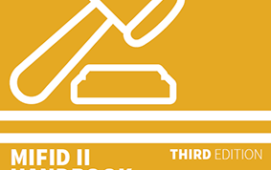As with many other intellectual or indeed leisure pursuits, getting to grips with reference data can be a stimulating affair. The more you scratch at the surface of the topic, the more complexity you find underneath.
Unpeeling the layers of the reference data onion seems to be emerging as a more rewarding vocation than it was before. When A-Team first launched Reference Data Review, friends who had been ‘burdened’ with the responsibility for reference data at their places of work – at user firms as well as at vendor organizations – rolled their eyes and generally huffed and puffed about what a drag the whole thing was. Not any more. Reference data is getting exciting. We’ve speculated in this column that part of the credit for this should go to the growing sophistication of the reference data protagonists within our industry. Increasingly, people are turning their serious attention to the individual components that make up the all-encompassing reference data grouping. As they become focused, so their output improves in quality. And so we’ve seen industry attempts to get deeper understanding of those various elements, from security identifiers to corporate actions. This season’s new flavour of the month – a mixed metaphor, we admit – has to be counterparty data. Yes, people have been banging on about this for some time. Indeed, we featured an interview on the topic with Cicada Cos.’ Richard Martin almost a year ago. But as with many things reference data, the topic just now appears to be taking off. Part of the interest seems to be generated by the Reference Data User Group (RDUG) ongoing project on international business entity identifiers. That, coupled with its involvement in ISO’s Working Group 8, is bringing senior talent to the discussion. As we report in this issue, other industry initiatives include the CreditDimensions initiative to pool legal entity identifier information between participating institutions. CreditDimensions is hooking up with Soliton to link that legal identifier information with instrument data managed by Soliton. Meanwhile, a second group, Azimuth, is working on a similar venture in the legal entities space. CB.net is also active in this space, particularly in working to combine clean BIC codes and standard settlement instructions (SSI) to aid STP. Asset Control, as we report in this issue, is extending its data model to cover counterparty data. We reported on the Crosswalk initiative that links Standard & Poor’s and Telekurs instrument data to the Dun & Bradstreet DUNS numbering corporate ID database a few issues back. And clever souls are now looking to add ratings and other data and analytics to the mix, giving credit and operational risk managers a top-down view of the organizations they do business with. One of the key challenges of any and all counterparty data initiatives may be to get all counterparties involved. Some have complained that the running is being made by the sell-side institutions and interested vendors. They worry that without the buy side’s involvement, perhaps resultant solutions will tell only half the story.
Subscribe to our newsletter




